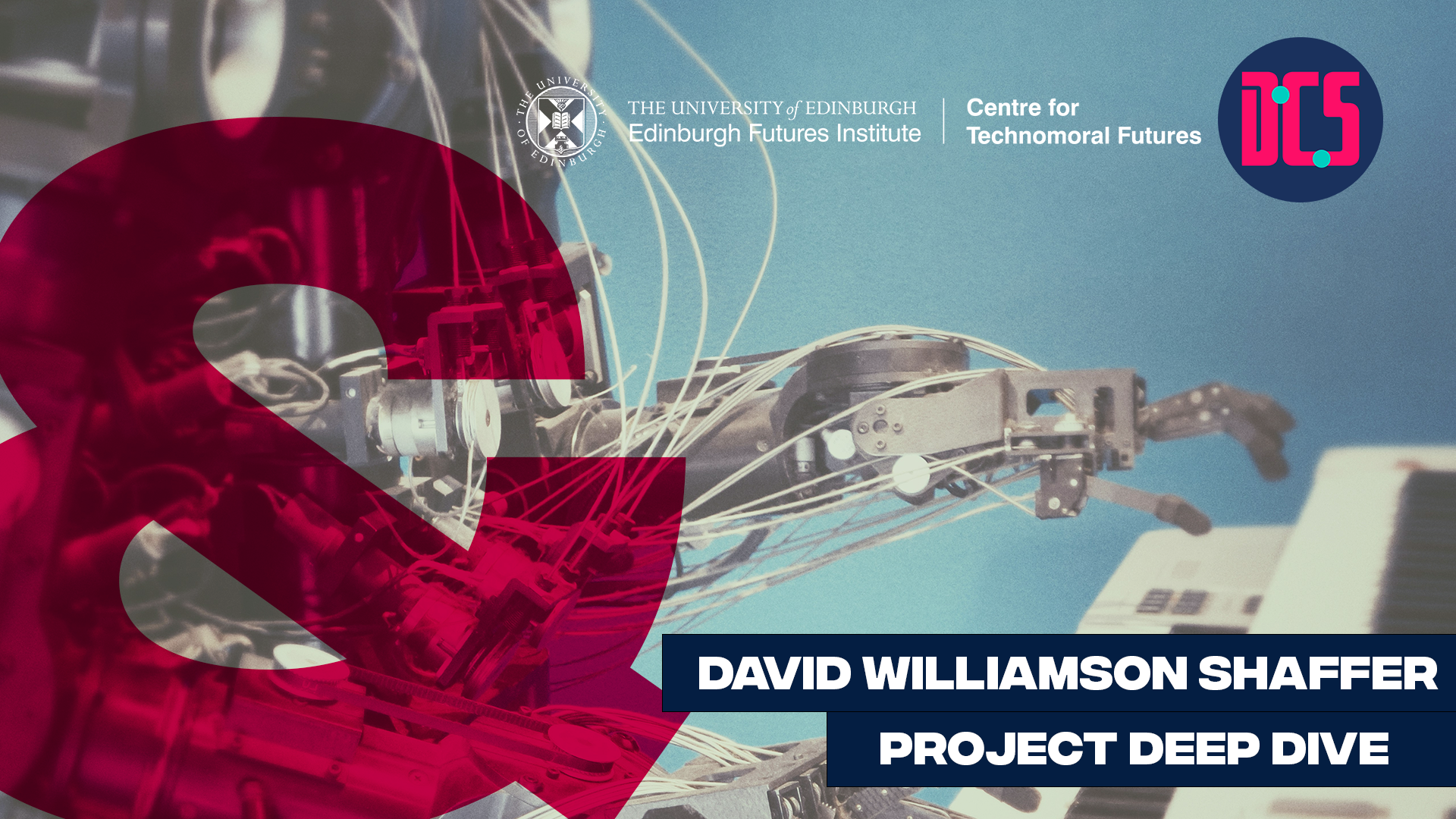About this event
This event is run in collaboration with the Edinburgh Futures Institute's Centre for Data, Culture & Society.
Abstract
ChatGPT and the other new advances in artificial intelligence have the potential to change work, education, and even what it means to “think” in the first place. In this talk, Professor David Williamson Shaffer looks at what AI is (and isn’t), its impact on what and how we learn, and how AI can change what it means to do research.
Speaker Biography
David Williamson Shaffer is the Sears Bascom Professor of Learning Analytics in the Department of Educational Psychology, a Data Philosopher at the Wisconsin Center for Education Research, and Director of the Center for Research on Complex Thinking at the University of Wisconsin-Madison. Professor Shaffer’s Ph.D. is from the Media Laboratory at the Massachusetts Institute of Technology, and he has been a teacher, teacher-trainer, curriculum developer, and game designer. Professor Shaffer’s current work focuses on unifying statistical, qualitative, and critical methods to construct fair models of complex and collaborative human activity. His most recent book, Quantitative Ethnography, launched a field that includes scholars from anthropology, cognitive science, computer science, education, engineering, environmental science, game design, geography, history, human–computer interaction, learning analytics, learning sciences, linguistics, medicine, psychology, robotics, sociology, and statistics.
Event Information
This event will take place in the Digital Scholarship Centre on the 6th floor of the Main Library. Please inform us of any access requirements by emailing cdcs@ed.ac.uk. Further details about how CDCS uses your information obtained from booking onto our events can be found in our Events Privacy Statement.
As of March 2022, the government formally removed all Covid restrictions in the UK. We ask that you continue to be considerate of others’ personal space, and please do not attend if you feel unwell or have any of Covid symptoms.

